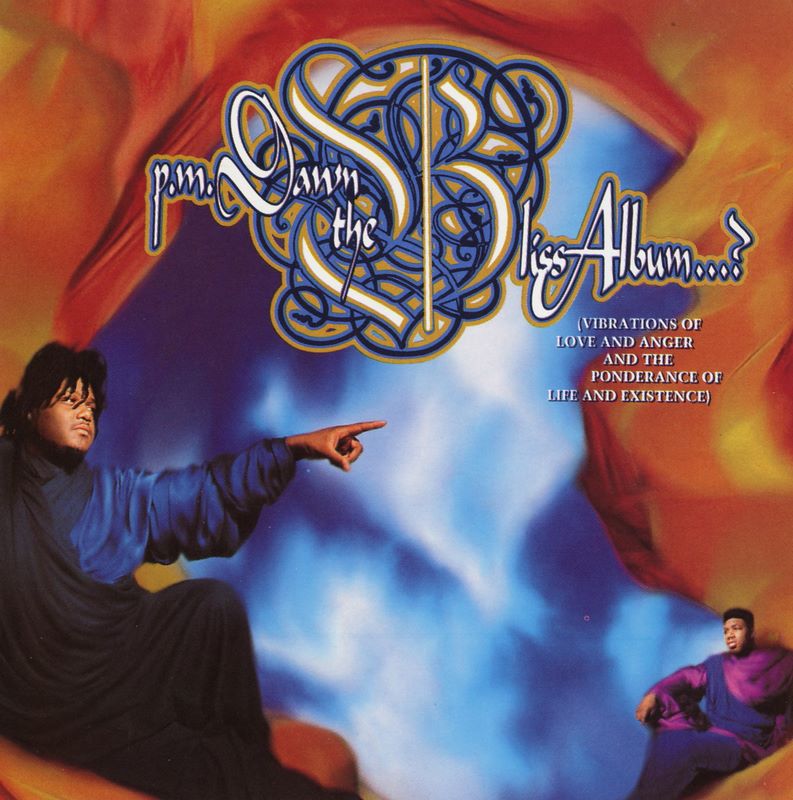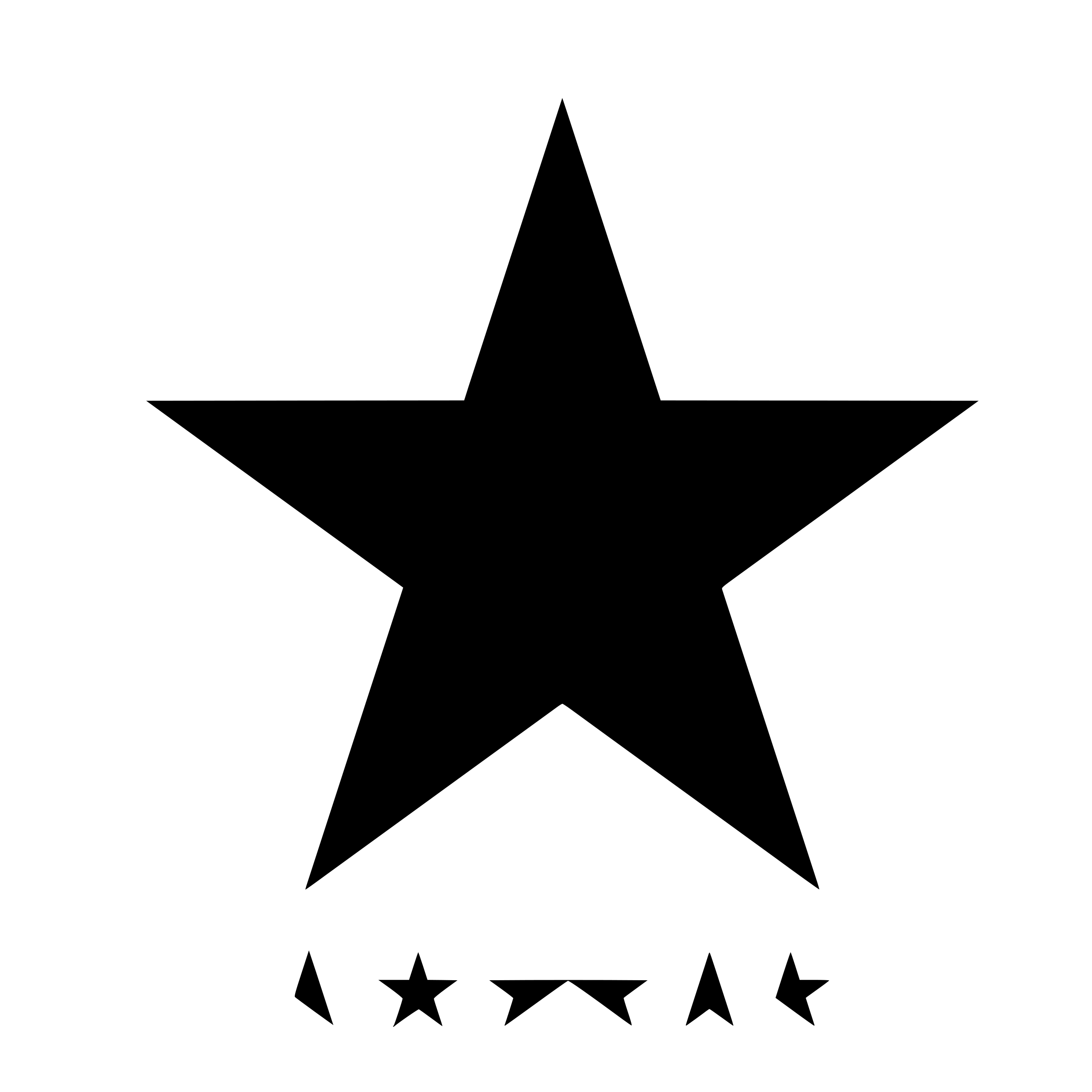The Jersey City duo P.M. Dawn's biggest hit was 1991's Spandau Ballet-sampling "Set Adrift On Memory Bliss," the first-ever Billboard #1 from a non-white rapper, and the first from anyone who wasn't Vanilla Ice or Marky Mark. But P.M. Dawn's most significant pop cultural moment came a few months later, at an MTV-sponsored January 1992 show at New York's Sound Factory. At that show, KRS-One and his goons stormed the stage when the duo were performing, pushing them off the stage and commandeering it to perform KRS's Boogie Down Productions song "I'm Still #1." A little while earlier, in an interview with Details, P.M. Dawn's granny-glassesed Prince Be had airily wondered this: "KRS-One wants to be a teacher, but a teacher of what?" The bum-rush was KRS's vehement answer. It's the sort of moment that would've absolutely broken the internet if it had happened in the YouTube era. And as a young rap nerd, it was perhaps the greatest example of KRS's unimpeachable badassery. I always pictured KRS lifting Prince Be over his head and Ultimate Warrior gorilla press-slamming him into the crowd. The reality was probably a whole lot messier and sadder, as realities tend to be. And looking back on P.M. Dawn's legacy a couple of decades later, it becomes increasingly apparent that they've got a whole lot more to do with rap circa-2013 than old reductive KRS does.
The Bliss Album...?, P.M. Dawn's sophomore album, turns 20 today. It's the first album the duo released after the KRS attack, and the last one they released as a commercially viable entity. And even more than their 1991 debut, The Bliss Album...? scans as a punk-as-fuck reaction against KRS's hardass preacherisms. It's soft, frilly, nebulous, willfully feminine. On the album's first chorus, Prince Be croons, "I cry when midnight sighs," whatever that means. The only guest on the whole LP is Boy George, gently wrapping his voice around Prince Be's on "More Than Likely." There's a cover of the Beatles' "Norwegian Wood" that flirts with the Beatles' starry-eyed psych-rock the same way the Beatles, at the moment they recorded the original, were flirting with Eastern modalities. Entire songs waft by without any drums, and when drums do show up, they're breakbeat shuffles that, in 1993, signified house music as much as they did rap, especially with the pianos P.M. Dawn loved to pair them with. The song that most directly addresses the KRS situation is "Plastic," more or less a straight-up early-'90s rap song about being an outcast hippie scapegoat and reveling in the status, and even that has a spiraling string-quartet intro that works as the most exciting moment on the song. The album's aesthetic is as defined by the ellipses and question mark in its title as the words themselves. The album serves as an absolute rejection of rap-music values that was, at the time, coming from a group that existed, more or less, within the context of the rap music establishment. It was one big soft, gushy negation, and I can't imagine the balls it took to release it.
There are goofy, embarrassing bits on The Bliss Album...?, sure. The peace-and-love talk of the lyrics sounds fluffy and silly now, as it presumably did at the time. And some of the rap moments feel awkwardly shoehorned in. Prince Be acquits himself decently on "Plastic," but you needed to do better than that if you were challenging KRS-One. The better bits recall the psychedelic plastic soul-pop of Prince's symbol era, with their soft but unstoppable choruses. And as with Prince's symbol album, the melodies on The Bliss Album...? hit hard and hold up way better than anyone might imagine.
And then there's "I'd Die Without You." The song may or may not belong to the album proper; it only shows up at the end, like a bonus cut, though it's never labeled as such. When the album came out, the song had already shown up on the pretty-amazing soundtrack of the terrible-by-reputation Eddie Murphy vehicle Boomerang (which I've never seen). The Bliss Album...? has a whole lot of great music on it, but my greatest challenge in writing this piece has been to listen to the rest of the album rather than just keeping "I'd Die Without You" on repeat. It's a mesmeric love song, drunk on devotion, a florid piano line leading into fingersnaps and gasps, Prince Be's tenor sigh melting all over a soft bed of synth-drones and sex-gospel backing coos. It's about the loss of self, about giving your solo being entirely away to the person you love, forgetting where you end and the other person begins. As with a lot of P.M. Dawn songs, there's no rapping whatsoever anywhere on it. If you catch me at the right moment, I might tell you it's the most perfect song I've ever heard. And when I was playing it for something like the fifth time in a row the other night, my wife walked into the room and asked if it was Frank Ocean. It wasn't such a ridiculous question.
P.M. Dawn aren't exactly a part of the pop-music conversation anymore, let alone the rap one. A version of the group still performs, but it's led by Prince Be and DJ Minutemix's cousin Doc G, who wasn't an original member of the group. Prince Be isn't even on the '90s nostalgia circuit anymore; a series of strokes over the past decade has left him incapacitated, and one of his legs had to be amputated after he suffered a gangrenous infection. But if you're listening for them, you can hear echoes of the group's music all over the current-day Tumblr-rap landscape. These days, not even traditionalist rappers are working KRS-One's fossil-hard essentialist style; they're pulling from the inward boom-bap of early Nas and Mobb Deep. But once you start looking through the P.M. Dawn lens, connections start to form. Now, we've got the hazy psychedelic float of A$AP Rocky and the cloud-rap underground that helped to birth him, we've got the gooey starry-eyed positivity of Lil B, we've got Frank Ocean and a small horde of others setting R&B adrift on memory bliss. Maybe all that would've happened without P.M. Dawn's distant example. But maybe not.
[videoembed size="full_width" alignment="center"][/videoembed]
[videoembed size="full_width" alignment="center"][/videoembed]
[videoembed size="full_width" alignment="center"][/videoembed]
[videoembed size="full_width" alignment="center"][/videoembed]






